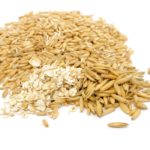
Comment

Comment: Ethanol’s tightening tough spot
Ethanol is facing a shrinking gasoline market

Comment: ‘No problem, I’ll just stop eating pork’
Actions that will erode confidence in food safety could prove costly

Comment: Can we bring back our soil?
The Soil Conservation Council of Canada is calling for a united effort from the farming community, government and agriculture industry to make soil health a priority

Comment: Getting to the real cost of cheap groceries
How much the new carbon tax will affect food prices in Canada is still a guessing game

Comment: How much water is needed to produce a pound of beef?
And just as importantly, what kind of water are we talking about?
Comment: Let’s ditch the silos
Canada must move towards an integrated agri-food policy framework

Comment: Why canola matters to all Canadians now
It’s the most Canadian of crops, a potent national symbol and now a target in a vicious diplomatic spat

Comment: U.S. beef exports up, producer revenue down
What good are growing exports to producers who are starting to struggle to pay the bills?

Comment: ‘Dirty dozen’ list of ‘dangerous’ produce questioned
Unnecessary concern about pesticides could backfire by reducing consumption of cancer-fighting produce

Comment: Time for a code of practice for grain production
Farmers urged to participate in a process started by the Grains Round Table


